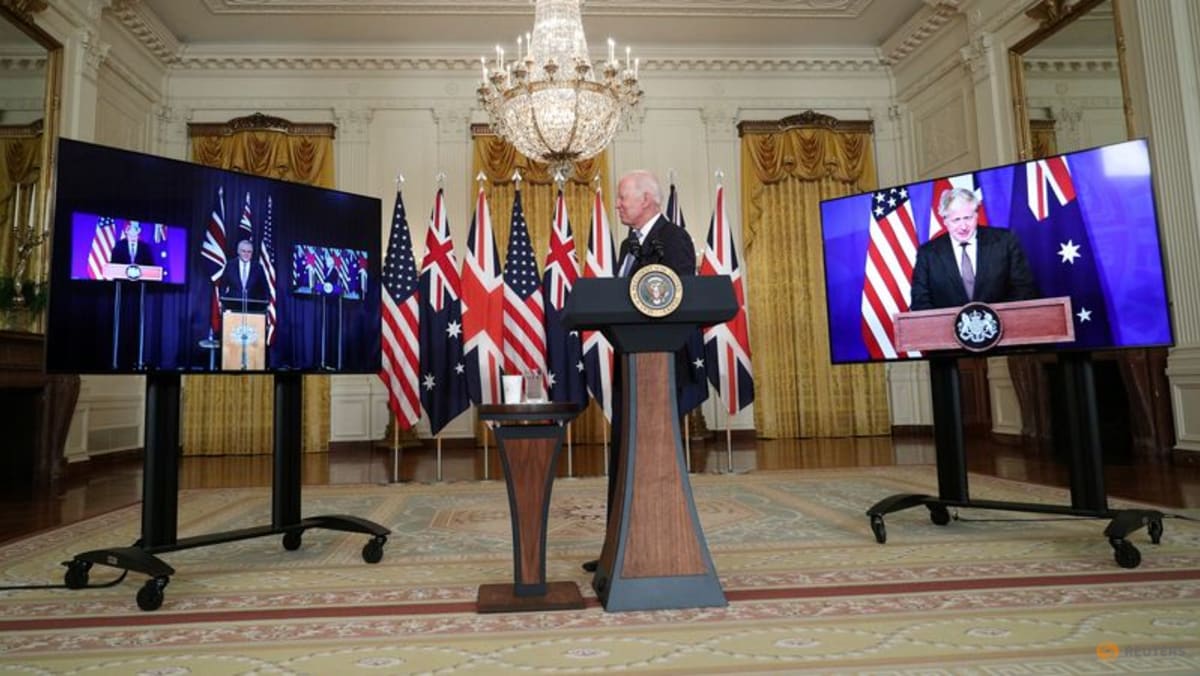
WHAT IS THE QUAD
It brings the US, Japan, India and Australia together in an informal alliance of democracies with shared economic and security interests that span the Pacific and Indian Oceans.
Formed to coordinate tsunami relief efforts, it lay dormant for years afterward until 2017, when it was revived under then-US President Donald Trump as his administration sought to challenge China from every angle.
Trump’s successor, Joe Biden, organised the first-ever gathering of the Quad leaders in March, at which they pledged to accelerate production of COVID-19 vaccines and distribute them across Asia.
Although their statement does not mention China, the talks came amid a flurry of US diplomacy designed to build a common approach to dealing with Beijing.
WHAT IS FIVE EYES
It is a decades-old intelligence-sharing arrangement among the US, the UK, Canada, Australia and New Zealand.
It is so good at keeping secrets that its existence was not publicly revealed until the mid-2000s.
It is not clear how much intelligence is shared, but most of whistle-blower Edward Snowden’s vast 2013 dump of classified US National Security Agency data, for instance, was marked FVEY, meaning it was available to other Five Eyes members.
Advocates say the collaboration was used to positive effect in the Afghanistan war as well as in counter-terrorism operations in the Philippines and East Africa. Snowden attacked it as unanswerable to democratic oversight by national governments.
Cracks emerged this year over China, when New Zealand distanced itself from moves to broaden the group’s remit and take positions on issues such as Beijing’s human rights record.
WHY SO MUCH FOCUS ON CHINA
Its rise has steadily become one of the biggest foreign policy challenges not just for the US, but for almost every Chinese neighbour and democracies around the world.
China’s rapid military development is a particularly acute threat to neighboring countries such as India and the Philippines, which have active maritime or border disputes. But it also threatens the US military presence that has underpinned Asia’s security architecture for decades.
Researchers at the University of Sydney, for example, warned last year that China’s growing missile arsenal could wipe out America’s bases in Asia during the “opening hours” of any conflict.
China’s global economic reach has also greatly expanded as state-owned companies buy up strategic assets such as ports around the world that could be harnessed in times of war.
Its statecraft - spearheaded by “wolf warrior” diplomats - has also grown more aggressive, particularly throughout the COVID-19 pandemic.
https://news.google.com/__i/rss/rd/articles/CBMiZ2h0dHBzOi8vd3d3LmNoYW5uZWxuZXdzYXNpYS5jb20vd29ybGQvYXVrdXMtYXVzdHJhbGlhLXVzLXVrLWNoaW5hLXF1YWQtZml2ZS1leWVzLXN1Ym1hcmluZS1kZWFsLTIxOTcxNzbSAQA?oc=5
2021-09-23 11:05:00Z
52781897754315
Tidak ada komentar:
Posting Komentar